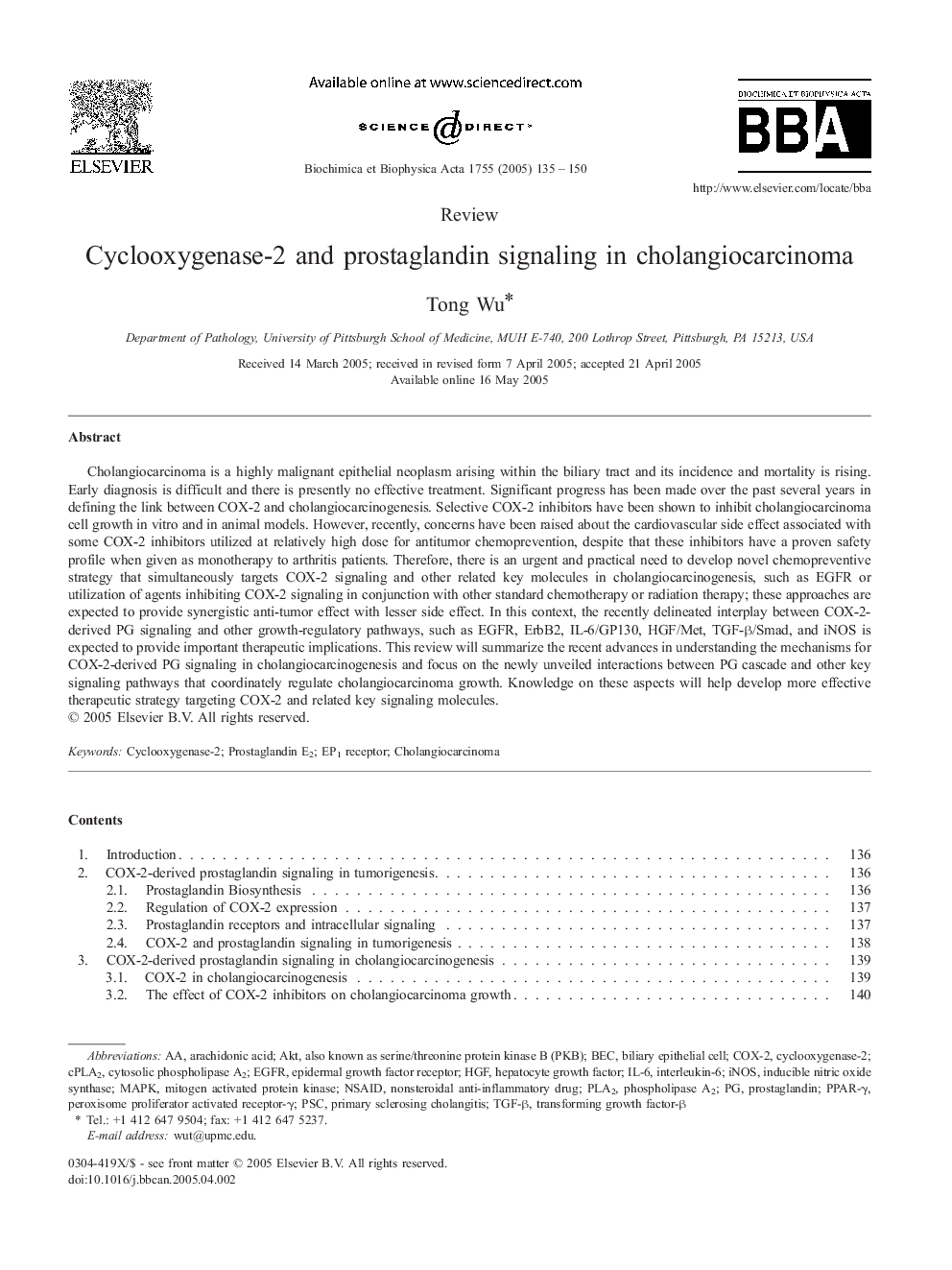| Article ID | Journal | Published Year | Pages | File Type |
|---|---|---|---|---|
| 10895657 | Biochimica et Biophysica Acta (BBA) - Reviews on Cancer | 2005 | 16 Pages |
Abstract
Cholangiocarcinoma is a highly malignant epithelial neoplasm arising within the biliary tract and its incidence and mortality is rising. Early diagnosis is difficult and there is presently no effective treatment. Significant progress has been made over the past several years in defining the link between COX-2 and cholangiocarcinogenesis. Selective COX-2 inhibitors have been shown to inhibit cholangiocarcinoma cell growth in vitro and in animal models. However, recently, concerns have been raised about the cardiovascular side effect associated with some COX-2 inhibitors utilized at relatively high dose for antitumor chemoprevention, despite that these inhibitors have a proven safety profile when given as monotherapy to arthritis patients. Therefore, there is an urgent and practical need to develop novel chemopreventive strategy that simultaneously targets COX-2 signaling and other related key molecules in cholangiocarcinogenesis, such as EGFR or utilization of agents inhibiting COX-2 signaling in conjunction with other standard chemotherapy or radiation therapy; these approaches are expected to provide synergistic anti-tumor effect with lesser side effect. In this context, the recently delineated interplay between COX-2-derived PG signaling and other growth-regulatory pathways, such as EGFR, ErbB2, IL-6/GP130, HGF/Met, TGF-β/Smad, and iNOS is expected to provide important therapeutic implications. This review will summarize the recent advances in understanding the mechanisms for COX-2-derived PG signaling in cholangiocarcinogenesis and focus on the newly unveiled interactions between PG cascade and other key signaling pathways that coordinately regulate cholangiocarcinoma growth. Knowledge on these aspects will help develop more effective therapeutic strategy targeting COX-2 and related key signaling molecules.
Keywords
Related Topics
Life Sciences
Biochemistry, Genetics and Molecular Biology
Cancer Research
Authors
Tong Wu,
